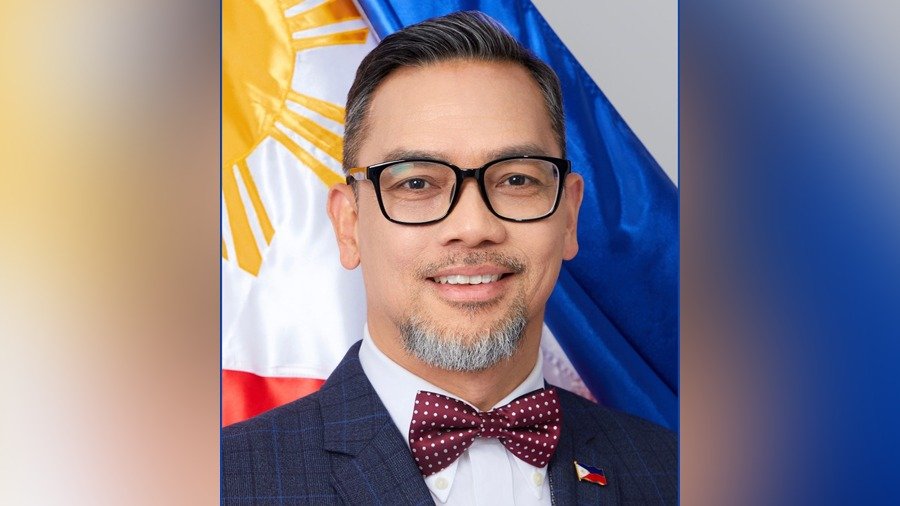
In an era marked by shifting geopolitical dynamics and the emergence of the Indo-Pacific as a key strategic space, India’s Act East Policy (AEP) has completed a transformative decade. At a seminar titled “Assessing a Decade of India’s Act East Policy: Achievements, Challenges, and the Road Ahead” organised by the Research and Information System for Developing Countries (RIS) on 14th April 2025, H.E. Josel F. Ignacio, Ambassador of the Republic of the Philippines to India offered a diplomatic appraisal of the policy’s evolution and its future trajectory.
Reflecting on the past ten years, Ambassador Ignacio likened the current moment to an artist stepping back from the canvas. “As with any long-term policy initiative, evaluation is vital. Much like a painter stepping back from the canvas to assess their work with fresh eyes, this moment allows us to reflect—objectively and thoughtfully—on the progress made, identify challenges, and consider how to fine-tune our approach going forward,” he remarked.
The Philippines, currently serving as the Country Coordinator for ASEAN-India Dialogue Relations (2024–2027), has taken on a proactive role in advancing the ASEAN-India Comprehensive Strategic Partnership. “We are honoured to serve in this capacity until 2027. We have embraced this responsibility wholeheartedly, working closely with ASEAN counterparts and the Indian Mission in Jakarta to advance our shared agenda,” he said.
Ambassador Ignacio emphasised the growing convergence between ASEAN and India on various fronts, highlighting the shift from India’s Look East to Act East as a decisive pivot. “The transformative shift from a Look East to an Act East policy was a decisive and welcome step by India. It marked a deliberate, proactive, and action-oriented strategy that reaffirmed ASEAN’s central role in India’s foreign policy.”
The Ambassador acknowledged the “Four Cs”—Culture, Commerce, Connectivity, and Capacity Building—as the core of the Act East Policy, praising India’s initiatives in each area. On trade, he pointed out, “In FY 2023–24, India ranked as ASEAN’s eighth-largest trade partner among dialogue partners, with bilateral trade amounting to approximately USD 121 billion.” Notably, India’s FDI into ASEAN grew from USD 2.4 billion in 2022 to USD 5.63 billion in 2023.
He also noted the active review of the ASEAN-India Trade in Goods Agreement (AITIGA), aimed at enhancing its business-friendliness and balancing trade frameworks. “We are now engaged in a review of the AITIGA to simplify and enhance the framework—making it more business-friendly, trade-facilitative, and balanced,” he said.
Beyond trade and economic collaboration, socio-cultural partnerships remain strong. Areas like tourism, air connectivity, education, biodiversity, and disaster management have all seen sustained cooperation. Security cooperation, too, has emerged as a pillar of strength. “India’s consistent support for ASEAN Centrality, its commitment to ASEAN-led mechanisms, and its participation in regional forums demonstrate a deep and genuine partnership,” he affirmed.
Crucially, maritime cooperation and adherence to international law were flagged as essential for regional peace. Ambassador Ignacio noted, “Our maritime cooperation must remain agile, adaptive, and grounded in international law—especially in addressing shared concerns in the South China Sea, the Straits of Malacca, and the Indian Ocean.”
Yet, despite policy-level achievements, the Ambassador cautioned about an area that requires urgent attention—public diplomacy. Drawing from the ASEAN People’s Perceptions Survey 2024, he raised concerns about India’s visibility and public image within ASEAN. “While countries like Japan and Australia scored highly in trust and visibility, India unfortunately scored low across several indicators—particularly in terms of visibility, reliability, and awareness of initiatives.”
He was quick to clarify that these were perceptions, not judgments. But the lesson was clear: “We must strengthen communication, outreach, and visibility—not only among governments but among our people. Effective diplomacy must also be people-centric and perception-sensitive.”
In closing, Ambassador Ignacio reaffirmed the Philippines’ commitment to fostering a resilient ASEAN-India partnership. “As we enter the next phase of the Act East Policy, I see tremendous potential for further deepening our cooperation. You have the full commitment of the Philippines to advancing a partnership that is productive, responsive, and mutually beneficial.”
As India looks eastward and ASEAN pivots to a more assertive Indo-Pacific posture, the coming years will define whether this partnership can move beyond official frameworks to capture the imagination and trust of their peoples. With partners like the Philippines on board, the Act East Policy appears poised not only to act but to endure.
Leave a Reply